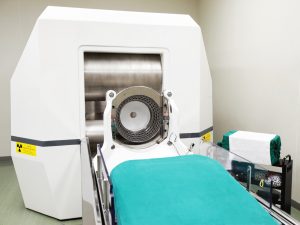The human body is astoundingly complex. It contains 78 main organs, 206 bones and 11 systems, including the nervous system.
Studying the human body and brain is an absolute privilege but there is undoubtedly a great deal to learn. The Human Disease Database estimates there are 26,000 anatomical diseases affecting specific areas of the body and a further 18,000 diseases affecting the whole body (such as genetic or metabolic conditions).
It’s no wonder that doctors began to develop specialist areas of practice – some specialise in the brain, spine and nerves, for example. Physicians and surgeons can be separated – between those who seek to treat illness primarily through medication and those who use operative procedures, although of course there is overlap.
That brings us to the difference between neurology and neurosurgery.
What does a Neurologist do?
A neurologist is a doctor who diagnoses and treats conditions affecting the brain, spinal cord and nerves. The nervous system is a complex, interrelated system that controls the senses, muscle movement, thinking and consciousness.
Neurology is a specialised area of medical practice. After becoming a doctor, a neurologist must complete 6 years of specialist training.
Why would I be referred to a neurologist?
Your GP might refer you to a neurologist if you have symptoms such as:
- Dizziness, balance or coordination problems
- Tingling or numbness
- Seizures
- Confusion or loss of memory
- Some types of chronic pain.
Neurologists treat patients with conditions such as:
- Parkinson’s disease
- Multiple sclerosis
- Motor neurone disease
- Alzheimer’s disease
- Meningitis
- Headaches and migraines
- Strokes
- Epilepsy and seizures.
What is a neurosurgeon?
A neurosurgeon is a doctor who has specialised in surgery on the brain, spine and nervous system.
Specialist neurosurgery training can take 5-9 years. Many neurosurgeons then complete sub-specialty training to develop further expertise in treating tumours (neuro-oncology and skull base surgery), disorders of blood vessels (vascular neurosurgery), or the spine (spinal neurosurgery). Neurosurgery for childhood disorders is also a specialised area (paediatric neurosurgery).
Why would I be referred to a neurosurgeon?
You might be referred to a neurosurgeon if you have a condition that requires surgical intervention.
Neurosurgeons may operate to treat a wide range of conditions.
Neurosurgeons may operate to treat a wide range of conditions.
| Neurovascular | Spine |
| |
| Tumours | CSF Disorders |
Neurosurgeon vs neurologist
Neurosurgeons primarily focus on treating conditions that require surgical intervention whereas neurologists use non-surgical treatments.
Your journey will begin with a visit to your GP. Having examined you and listened to your symptoms, your GP may refer you to a neurologist for initial evaluation and management of your symptoms. If surgical intervention is required, your neurologist or GP may refer you to a neurosurgeon.
Despite their different areas of expertise, neurosurgeons and neurologists work closely together to advance patient care.
Take chronic pain. This can be hard to treat and may require collaboration between neurologists, neurosurgeons and pain specialists. This multidisciplinary approach to treatment can benefit patients, ensuring that all treatment options are considered.
How can we help?
Macquarie Neurosurgery & Spine’s highly trained and experienced neurosurgeons are recognised as world leaders in the treatment of spinal and brain conditions.
If you have any concerns about your neurological health, please contact us or ask your GP for a referral to Macquarie Neurosurgery and Spine.
Disclaimer
All information is general and is not intended to be a substitute for professional medical advice. Macquarie Neurosurgery and Spine can consult with you to confirm if a particular treatment or procedure is right for you. Any surgical or invasive procedure carries risks. A second opinion may help you decide if a particular treatment is right for you.
References
- Espe S. Malacards: The Human Disease Database. J Med Libr Assoc. 2018 Jan;106(1):140–1. doi: 10.5195/jmla.2018.253. Epub 2018 Jan 2. PMCID: PMC5764584. https://www.ncbi.nlm.nih.gov/pmc/articles/PMC5764584/#, [Accessed 21 June 2024]
- Healthdirect, The role of a neurologist, https://www.healthdirect.gov.au/neurologist#, [Accessed 21 June 2024]
- Cleveland Clinic, Neurosurgeon, https://my.clevelandclinic.org/health/articles/22364-neurosurgeon, [Accessed 21 June 2024]






